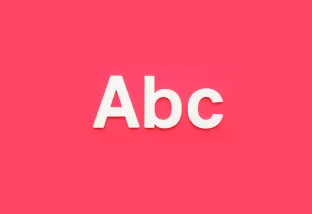 Passive
Passive
Lesson forty-six


Lesson forty-five
The Italian subjunctive mood, il congiuntivo, is often considered one of the trickiest areas of Italian grammar. It is essential for expressing nuance, as it conveys doubt, desire, opinion, emotion, or uncertainty. While its use has decreased in everyday spoken Italian, especially in casual conversations, it remains crucial in written Italian, formal speech, literature, and professional contexts.
The congiuntivo is used to describe actions, thoughts, or feelings that are uncertain, hypothetical, subjective, or influenced by personal perception. Unlike the indicative, which expresses facts or certainty, the subjunctive highlights doubt, possibility, or desire. It often appears after verbs such as:
It can also follow impersonal expressions or conjunctions that indicate necessity, possibility, or judgment.
Penso che Roma sia una bella città.
I think that Rome is a beautiful city.
Credo che tu abbia fatto la scelta giusta.
I believe that you made the right choice.
Spero che tu guarisca presto.
I hope you recover soon.
Mi sembra che Tiziana sia simpatica.
It seems to me that Tiziana is nice.
Ho l’impressione che stia per piovere.
I have the impression that it’s about to rain.
The subjunctive is often used to express what someone wishes, hopes, or wants. These sentences usually involve a main clause followed by che + subjunctive:
Desidero che tu stia bene.
I wish that you are well.
Vorrei che tu mi aiutassi a risolvere questo problema.
I would like you to help me solve this problem.
Il mio capo vuole che lavori di sabato.
My boss wants you to work on Saturday.
Impersonal expressions often require the subjunctive to indicate uncertainty or evaluation, rather than stating facts:
È bello che tu sia venuto.
It’s nice that you came.
È impossibile che io finisca prima delle due.
It’s impossible for me to finish before two o’clock.
If the subject of both clauses is the same, it’s common to use di + infinitive instead of che + subjunctive:
Spero di stare bene.
I hope to be well.
Spero di avere successo nella vita.
I hope to have success in life.
The present subjunctive expresses doubt, desire, opinion, or emotion in the present or future. It is often introduced by che (that), se (if), or expressions of judgment, hope, or necessity.
Regular -ARE verbs follow these endings in the present subjunctive: -i, -i, -i, -iamo, -iate, -ino.
| Pronoun | Sognare (to dream) | Iniziare (to begin) |
|---|---|---|
| Io | sogni | inizi |
| Tu | sogni | inizi |
| Lui/Lei | sogni | inizi |
| Noi | sogniamo | iniziamo |
| Voi | sognate | iniziate |
| Loro | sognino | inizino |
Regular -ERE verbs use the endings: -a, -a, -a, -iamo, -iate, -ano.
| Pronoun | Scrivere (to write) | Vivere (to live) |
|---|---|---|
| Io | scriva | viva |
| Tu | scriva | viva |
| Lui/Lei | scriva | viva |
| Noi | scriviamo | viviamo |
| Voi | scriviate | viviate |
| Loro | scrivano | vivano |
Regular -IRE verbs follow the same pattern as -ERE verbs: -a, -a, -a, -iamo, -iate, -ano.
| Pronoun | Dormire (to sleep) | Partire (to leave) |
|---|---|---|
| Io | dorma | parta |
| Tu | dorma | parta |
| Lui/Lei | dorma | parta |
| Noi | dormiamo | partiamo |
| Voi | dormiate | partiate |
| Loro | dormano | partano |
Some -IRE verbs insert -isc- in the present indicative. In the present subjunctive, they also insert -isc- except in the noi and voi forms, which follow the standard -IRE endings:
| Pronoun | Finire (to finish) |
|---|---|
| Io | finisca |
| Tu | finisca |
| Lui/Lei | finisca |
| Noi | finiamo |
| Voi | finiate |
| Loro | finiscano |
Many common Italian verbs are irregular in the subjunctive. Here are some important examples:
The past subjunctive is formed using the present subjunctive of essere or avere plus the past participle of the main verb. It expresses an action that is completed or has relevance in the present:
Penso che Sara abbia visto un film.
I think that Sara saw a movie.
Spero che il colloquio sia andato bene.
I hope the interview went well.
Used when the main verb is in the past and the action is simultaneous or ongoing in relation to it:
Pensavo che tu parlassi bene italiano.
I thought that you spoke Italian well.
Volevo che tu venissi con me.
I wanted you to come with me.
Formed using the imperfect subjunctive of essere or avere plus the past participle. It refers to actions that were completed before another past action:
Speravo che tu fossi venuto.
I hoped that you had come.
Non sapevo che tu avessi vissuto a Londra.
I didn’t know that you had lived in London.
The Italian subjunctive il congiuntivo is a powerful tool for expressing uncertainty, subjectivity, emotion, or desire. It is essential after certain verbs, impersonal expressions, and conjunctions, but is avoided when the subject is the same in both clauses, using di + infinitive instead. There are four main tenses: present, past, imperfect, and pluperfect. Mastering both regular and irregular verbs in these forms allows you to convey subtlety and nuance in Italian writing and speech. While challenging at first, consistent practice with examples, tables, and real-life contexts makes the subjunctive manageable and a rewarding part of Italian grammar.
 Passive
Passive
Lesson forty-six
 Trapassato prossimo
Trapassato prossimo
Lesson forty-seven
 Passato remoto
Passato remoto
Lesson forty-eight
 Alphabet
Alphabet
Lesson one
 Hello
Hello
Lesson two
 Goodbye
Goodbye
Lesson three